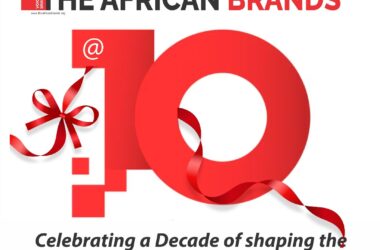Recently, one of the leaders of PAYTV service providers in Nigeria; Multichoice, the owners of DStv and GOtv, disclosed that rates would go up in Nigeria. This immediately led to a social media outrage, with many calling it insensitive most especially in a time like this.
In what appears to be a defence of the moves, John Ugbe, chief executive officer of Multichoice, said the company did not increase subscription rates, stating it was only an adjustment to reflect the increase in value added tax (VAT).
The federal government had in a bid to increase revenue to cope with economic realities of the oil price slump at the international market passed the finance bill into law, with implementation effective February 2020. Part of the provisions of the law was an increase in VAT from five percent to 7.5 percent. This affected every business in the country.
The outrage has made many analysts to learn their voices on the issue saying that, necessity is something necessary or indispensable while luxury is something a consumer can do away with.
Some of these analysts believe that one of the reasons why brands in Nigeria do as it pleases them with pricing is because Nigeria is a free flaw market. For them, there is no regulatory agency in Nigeria that deal with pricing on PAYTV services.
However, it is also important to note that, business owners work in tandem with government policies, whenever there is adjustment in VAT by the government, business owners are likely to adjust their prices and the end Consumer will be at the receiving end.
Following this reality, the house of representatives insisted that cable and satellite television service providers in the country must introduce a pay-as-you-go subscription plan for customers.
The house ad hoc committee investigating DStv said the tariff in Nigeria is particularly higher than it is in other countries across Africa.
But another report debunked this claim stating that, DStv subscription is cheaper in Nigeria than most of its peers across Africa. The report chose the popular bouquets, uniform in all the countries compared: premium, compact plus, compact, family, and access.
In Nigeria, for example, the premium package is N16,200, which translates to $41.86 at the prevailing foreign exchange rate. In Ghana, that same bouquet goes for 340 cedis or $58.72. This means the Ghanaian bouquet is $16.86 (N6,524) more expensive than its Nigerian equivalent.
The cheapest bouquet in both countries goes for $6.63 (N2,565) and $6.91 respectively, making the Ghanaian bouquet more expensive at both ends of the spectrum.
As for South Africa, the continent’s most industrialized economy and home to Multichoice, the story is no different. In dollar terms, the premium bouquet goes for $43.55 as against Nigeria’s $41.86. The cheapest bouquet in both countries, however, favour South Africa. While DStv Yanga (Access) goes for $6.63 in Nigeria, the same package goes for $5.76 in South Africa.
In Kenya, the gap is clear: while the premium bouquet is $69.27 (N26,807), the access plan is $8.32 (N3,220). This is over N10,000 more expensive than Nigeria’s most priced bouquet, and about N700 more expensive at the cheapest end. The case is the same for Botswana.
To this end, findings by CONSUMERS ASSEMBLY shows that, despite the implementation of the 7.5 percent value-added tax in Nigeria, Multichoice bouquet rates in Nigeria are not the highest in Africa. They are more expensive in other African countries, including South Africa, where the service provider originates from
Speaking on this issue, a human rights lawyer, Ebun-Olu Adegboruwa, SAN said; “It was like a movie, watching the proceedings of the Ad Hoc Committee set up by the House of Representatives, to probe the hike of subscription rates by cable television service providers. The Chairman of the said Committee, Hon Unyime Idem, took me back to my Aluta days at Obafemi Awolowo University (Great Ife), roaring like a lion and reeling out the will of the people of Nigeria with such vehemence, on these shylock entities called cable television companies.”
According to him, “the cable television service providers force their customers into a monthly regime of subscription, irrespective of the conditions of viewing, the quality of the service or even its availability. So, you pay for DSTV in your house for a whole month or a whole year, you pay for DSTV in your office, you pay for DSTV in your village, you pay for DSTV in your guest house in Abuja or anywhere else you have some presence.”
He pointed out that, “the cable television company keeps collecting money for dormant viewing or no viewing and keeps smiling to the bank every day, upon the sweat and suffering of its customers. Not being God with the capacity to be omnipresent, a human being can only be at a single location at a given time. Whilst your television in the office is off at night or anytime you are not there, you keep paying for viewing nothing; when you travel outside Nigeria or you are away from your house or your office, you keep servicing the empty apartment through monthly or yearly payment. When you happen to pop in and you are ready to watch the television just may be once in a month, it would suddenly go off, due to bad weather, poor connection, thunderstorm or common rainfall, but you have paid to the company and you must keep paying. Thus, the situation with many Nigerians is that we are forced to subsidize the greed of the cable television service providers, which profit from services not rendered and they are not willing to change, taking this as some kind of windfall.”
“the National Broadcasting Commission Act is very clear, in terms of the powers vested upon the NBC to regulate the broadcasting industry in Nigeria, especially in section 2 thereof. The NBC is empowered to regulate and control the broadcasting industry, to investigate complaints regarding the contents of a broadcast and the conduct of broadcasting stations and upholding the principles of equity and fairness in broadcasting, etc. As you would well agree with me, the NBC has so far turned a blind eye to the exploitative tendencies of the cable television service providers, with scant regard for the onerous responsibility imposed upon it by law to ensure “strict adherence to the national laws, rules and regulations relating to the participation of foreign capital in relation to local capital in broadcasting”. He added.
“Nigerians have before now protested, they have filed cases in court and they have written several complaints to the National Assembly, all to no avail, as the service providers have insisted on maximum profit, without regard for the satisfaction or plight of their customers. And the questions keep popping up all the time: why is there only one company in a country of about two hundred million people, providing cable television service? Why DSTV only? Why has NBC become so weak and dysfunctional to become totally incapable of protecting the people that it was set up to serve? When will the exploitation end? Why is it impossible to hold DSTV accountable to the same pay per view policy that the same company is implementing in its home country and indeed other African countries? He asked
Continuing, he disclosed that; “if your subscription to cable television expires, you are disconnected instantly and automatically, but when you renew it, you have to call customer service to get reconnected, going through all manner of manipulative regimes that may cause you days of inactive service despite payment which is already running. What has NBC done, to advocate for extension of viewing time to correspond to the period of inactive service after payment? How do you allow a company floated by private individuals for their own personal profit, to ride roughshod over a whole nation, rendering all of us helpless and exploited? During the initial life of GSM service providers in Nigeria, we heard all manner of stories and arguments why it was impossible to provide calls per second, until another network came on board and revolutionized GSM in Nigeria, thus freeing us from the commercial bondage.”
“It is the same story with DSTV and other cable television service providers. Attempts have been made in the past to compete with DSTV and break its monopoly, through HITV and lately TSTV, all of which did not materialize. Why? Only NBC can answer that question successfully.” He noted









